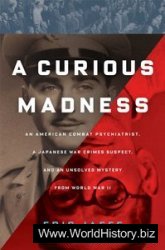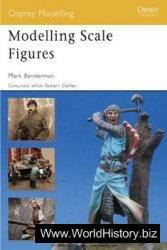The study of the history of medicine - of theories of how the body works, what causes disease, how best to cure it, and who is best qualified to try - poses in a particularly clear way the difficulties of understanding the past. On the one hand, we would seem to share with the people of the ancient world the experiences of being born, living as a body, suffering and dying: but, on the other hand, it is hard to know how much is really “shared,” when our interpretations of the body can be so different. How far can those who believe in the circulation of the blood understand others who thought of their bodies in terms of various fluids, produced in the liver from their food and then pulled to the parts of the body where they were most needed? Can someone who regards the pulse as a numerical indication of heart rate make sense of someone who thought of it not so much as quantitative, but rather as a qualitative clue to emotion? Believing in fever as a symptom of various types of infection, how do we react to cultures in which the fever itself is instead seen as the disease?
The many surviving medical texts from the Greek and Roman worlds have always been of interest to scholars, but until the last century they were studied more by medical doctors and philologists than by ancient historians. Because the theories of the workings of the human body discussed by the writers of the Hippocratic corpus in the fifth century bc onwards, and then developed by Galen (129 until after 210 AD) in the Roman empire, formed the basis of medicine during the middle ages and the Renaissance and beyond, medical doctors valued the ancient texts as a useful resource; when Emile Littre translated the Hippocratic medical texts from Greek to French in the middle of the nineteenth century, he did so because he thought they were relevant to the medicine of his own day. An often complex manuscript tradition, with some works of Galen having been translated from Greek into Arabic before being translated into Latin, meant that the original technical terms for parts of the body and for the materials used in remedies could be difficult for philologists to reconstruct. However, medical texts provided a useful source of alternative meanings
A Companion to Ancient History Edited by Andrew Erskine © 2009 Blackwell Publishing Ltd. ISBN: 978-1-405-13150-6
For the words they studied. In the third century bc in particular, expressions for newly discovered parts of the body and its processes were coined by variation on the everyday vocabulary; for example, “retina” is based on the word for “net.”
The legacy of many centuries of practical medical interest in these texts leads to the temptation to read back modern theories and discoveries into the past, ranking ancient medicine according to how closely its practitioners came to the truth as we now perceive it. For example, third-century bc accounts of the blood vessels have tempted some writers to suggest that the circulation of the blood was “nearly” discovered in the third century bc. There are still medical attempts to “diagnose” the plague affecting Athens from around 430 to 426 as smallpox, anthrax, measles, typhus, ergotism, toxic shock syndrome, or a host of other possibilities. However, the symptoms of diseases change over time as the causative organism alters, and the population affected adapts, and so perhaps the condition no longer exists today in any form that we could recognize. Some modern readers of our only literary source for the plague, Thucydides (2.47-55), still argue that his description reveals knowledge of transmission by contagion, and of acquired immunity; but, even if we accept that Thucydides noted these features, it remains the case that he had no theoretical framework in which they could have made sense.
As the rise of modern medicine has made the theories of disease and recommended remedies of Greek and Roman medicine increasingly irrelevant, so ancient history has come to find the same texts of ever greater interest. They are now seen as providing valuable insights into a range of areas, including the history of ideas, social history, and gender history. In dialogue with those studying the medicine of other historical periods, historians of ancient medicine now focus more on making sense of ancient medicine in the philosophical, social, and cultural context of its own time.




 World History
World History









